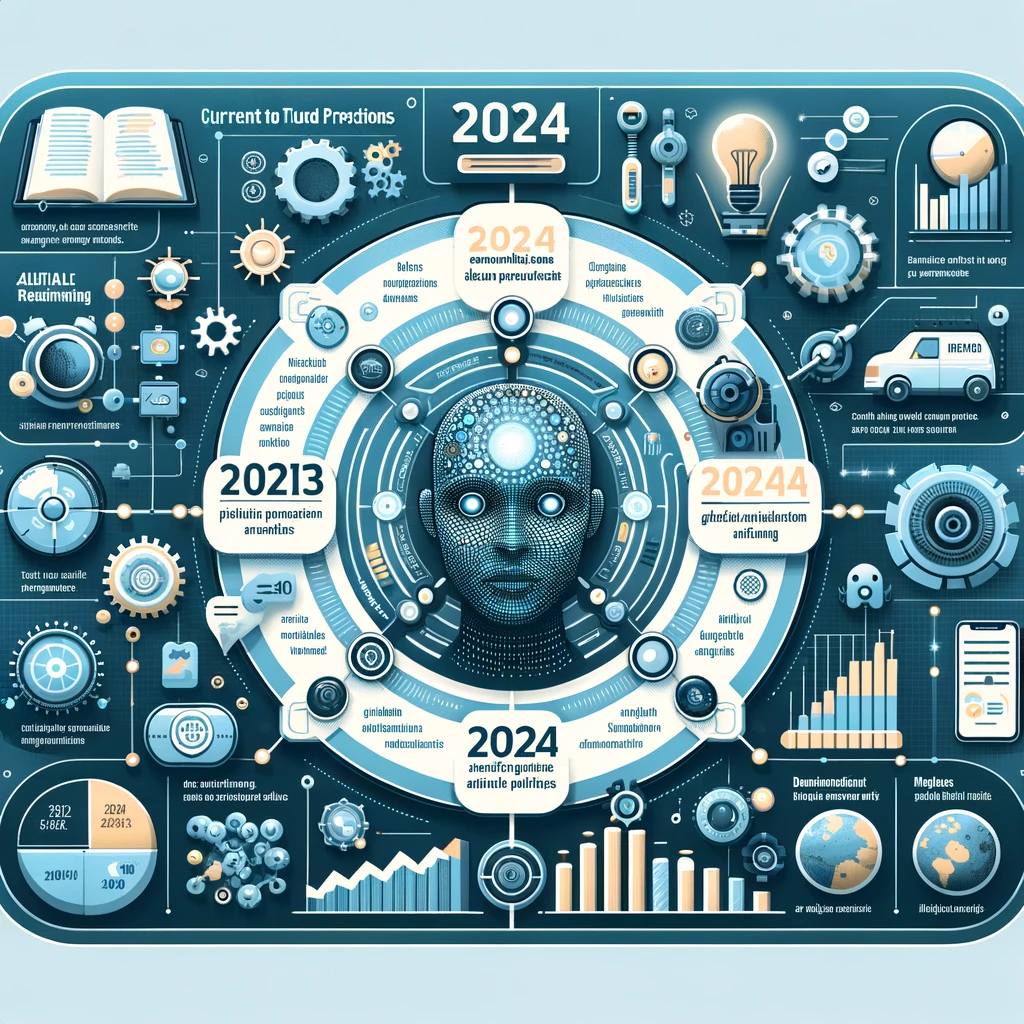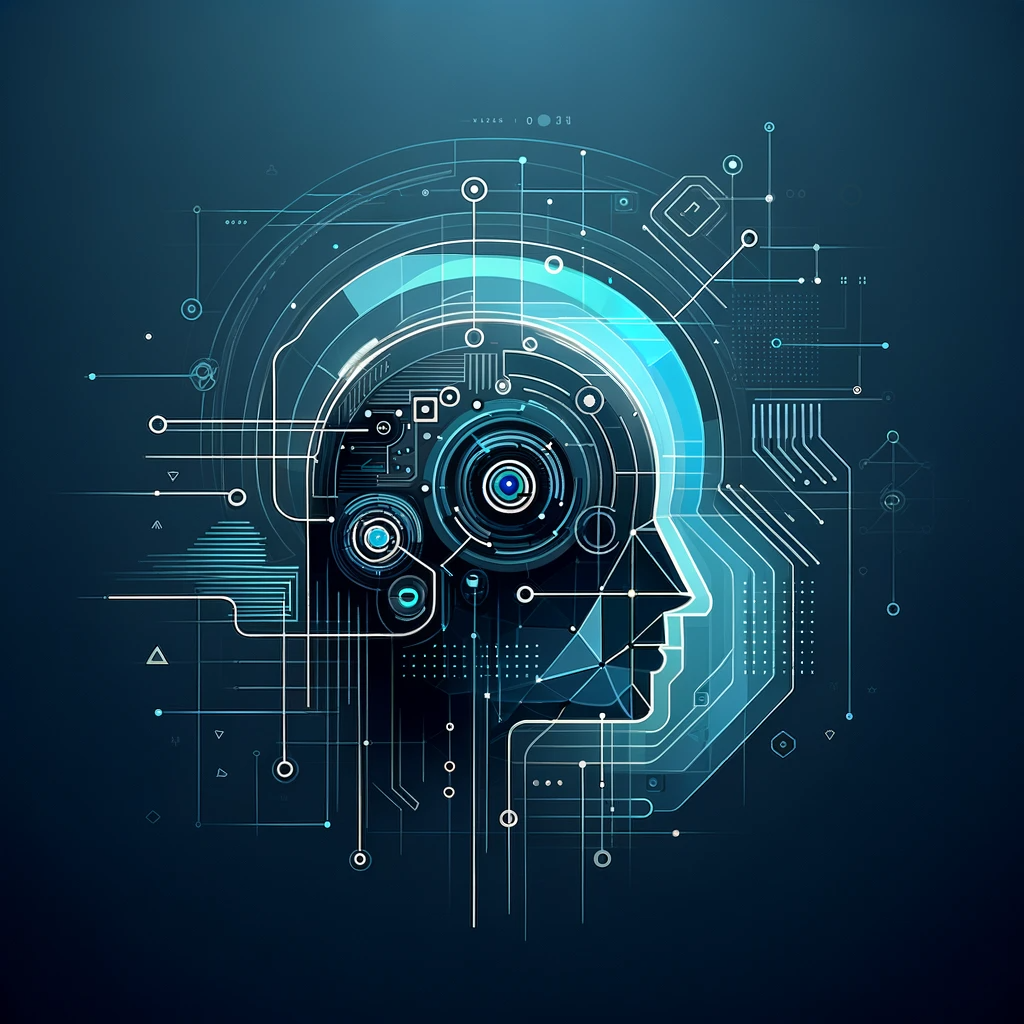Introduction
As we step into 2024, artificial intelligence (AI) continues to shape our world in unprecedented ways. From revolutionizing healthcare to transforming the way businesses operate, AI’s relentless evolution makes it one of the most exciting fields to watch. This article delves into the current state of AI, its latest achievements, and the trends set to define its future.
Current State of AI: A Snapshot
- Advancements in Machine Learning:
- Enhanced algorithms
- Increased data processing capabilities
- AI in Healthcare:
- Diagnostic tools
- Personalized treatment plans
- Automation in Industries:
- Manufacturing and logistics
- AI-powered customer service
Latest Achievements in AI
- Language Models: Breakthroughs in natural language processing, enabling more sophisticated and context-aware interactions.
- Robotics: Advancements in autonomous robotics, leading to more efficient and safer industrial applications.
- Ethical AI: Development of frameworks and guidelines to ensure ethical usage of AI technologies.

Trends and Predictions for 2024
Table: AI Trends and Predictions for 2024
| Trend/Prediction | Description |
|---|---|
| Predictive Analytics | AI-driven predictions in various sectors |
| AI in Education | Customized learning experiences |
| AI Governance | Policies for responsible AI use |
Expert Insights
“AI is not just a technological revolution but a paradigm shift in innovation,” says Dr. Jane Smith, AI Researcher at TechFuture Institute. “In 2024, we expect to see AI becoming more seamlessly integrated into our daily lives, making processes more efficient and decision-making more informed.”
Fascinating Facts About Artificial Intelligence
Artificial Intelligence (AI) is not just a futuristic concept; it’s a rapidly evolving field that is already shaping our world in remarkable ways. Here are some intriguing facts about AI that showcase its incredible potential and the journey it has taken so far:
- The Birth of AI: The term “Artificial Intelligence” was first coined by John McCarthy in 1956 at the Dartmouth Conference, marking the official beginning of AI research.
- AI’s Chess Victory: In 1997, IBM’s AI computer, Deep Blue, defeated world chess champion Garry Kasparov, a pivotal moment demonstrating AI’s potential in problem-solving and strategy.
- Language Mastery: Google’s AI model, BERT, can understand and interpret the context of words in search queries, significantly improving the accuracy of search results.
- Creative AI: AI algorithms have created artworks, composed music, and even written short stories, challenging our perceptions of creativity and artistry.
- AI in Healthcare: AI is revolutionizing healthcare with applications like predicting patient risks, assisting in surgeries, and personalizing patient care plans.
- Self-Driving Cars: Companies like Tesla and Waymo are at the forefront of developing AI-powered self-driving cars, aiming to transform transportation.
- AI for Social Good: AI is being used to tackle critical global challenges, including climate change analysis, wildlife conservation, and humanitarian aid.
- Quantum AI: The integration of AI with quantum computing has the potential to solve complex problems much faster than traditional computers, opening new horizons in AI capabilities.
- AI Ethics: As AI technology advances, the discussion around AI ethics, including privacy, bias, and job displacement, becomes increasingly important.
- Future of AI: Experts predict that AI will continue to advance, potentially leading to breakthroughs in understanding human intelligence and solving some of the world’s most pressing issues.
These facts illustrate the dynamic and transformative nature of AI, highlighting its impact across various sectors and its potential to change the world as we know it.
Looking Ahead
As AI continues to evolve, its impact on society and business becomes more profound. With advancements in AI ethics and governance, 2024 is poised to be a year where AI not only innovates but also becomes more accountable and transparent.
Conclusion
The future of AI is not just about technological advancements but about how these innovations are integrated into our lives. As we look towards 2024, the possibilities are endless, and the journey of AI continues to be one of the most exhilarating aspects of modern technology.


Leave a Reply